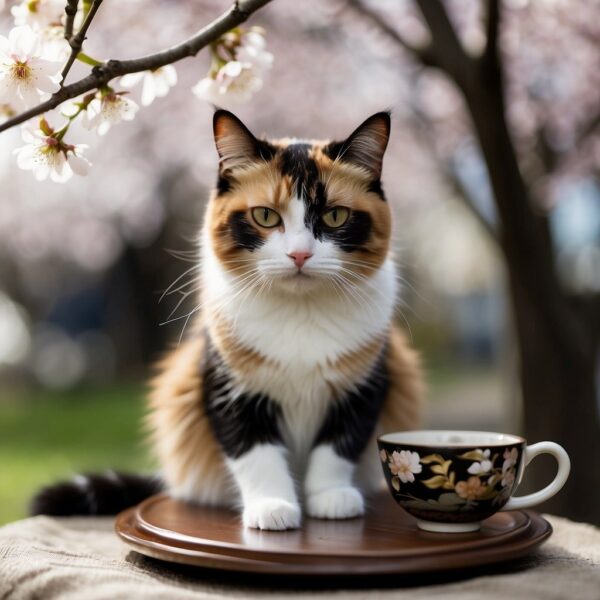
Japanese Names for Cats: Culture Inspired
Selecting a name for your catt is a cherished ritual that often reflects the guardian’s interests, cultural heritage, or the unique personality of the animal. In particular, Japanese cat names are increasingly popular among cat parents worldwide, due to Japan’s rich cultural influence and the special place cats hold within their society. These names range from the delightful references to nature and characteristics to those inspired by traditional Japanese foods and historical figures.
The act of naming your feline friend with Japanese nomenclature is not just about choosing a unique label; the name ties the cat to the aesthetic and symbolic qualities inherent in Japanese tradition. Such names can carry profound meanings, express particular traits, or even bestow wishes for luck and prosperity upon your companion. For instance, names like Sakura (cherry blossom) and Kaito (ocean flying) embody natural beauty and grandeur, while names like Yoshi (good luck) carry a wishful significance.
Key Takeaways
- Japanese cat names offer a range of options reflecting Japan’s cultural heritage.
- The significance of these names can symbolize traits, nature, or bestow positive wishes.
- Selecting the right Japanese name involves considering the cat’s personality and the meaning behind the name.
The Significance of Japanese Cat Names
In Japanese culture, the act of naming a cat extends beyond a simple label; it is a thoughtful process that reflects the rich heritage and values of Japan. The names often carry a profound meaning, blending seamlessly with the cultural importance that felines hold within the society.
Heritage and Tradition:
Japanese cat names are imbued with the beauty and intricacy of the Japanese language. They frequently allude to characteristics that are esteemed in Japan, such as honor (Takashi), beauty (Yumi), or nature (Kaze for wind). This highlights a deep connection with the traditional values and aesthetics of Japanese culture.
Cultural Reverence:
Cats are highly regarded in Japan, believed to bring good fortune and prosperity. Names like Maneki (beckoning) derive from the famous Maneki-neko, the beckoning cat figurine that is a common talisman for good luck.
Meanings Matter:
A strong emphasis is placed on the meaning behind a name. Yuki (snow) may signify purity, while Tora (tiger) suggests strength. Choosing a name with a positive connotation is believed to bestow those qualities upon the cat.
Natural Inspirations:
The beauty of nature heavily influences the naming tradition, with many cats bearing names such as Sakura (cherry blossom) or Aki (autumn). These names reflect the seasonal changes and natural phenomena precious to the Japanese sensibility.
Gender-Specific Names:
Names can also be gendered, with lists often organized for male and female cats to reflect societal norms and linguistic patterns in Japan.
| Male Names | Meaning | Female Names | Meaning |
|---|---|---|---|
| Hiro | Generosity | Yumi | Beauty |
| Kaito | Ocean | Sakura | Cherry blossom |
Japanese cat names are a testament to the country’s profound connection with its feline friends, a mix of cultural, linguistic, and traditional significance, elegantly encapsulated in a single name.
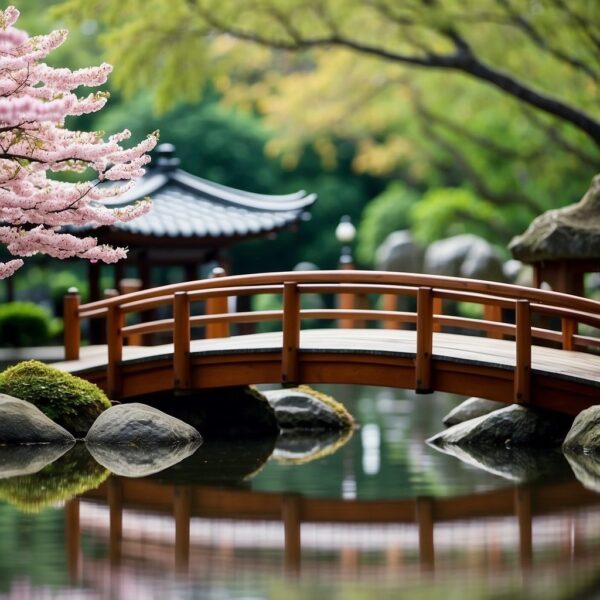
Choosing the Right Name
When selecting a Japanese name for a cat, it’s important to consider factors such as the cat’s individual personality traits, physical characteristics, and the cultural significance of the name. This ensures that the chosen name is not only unique and fitting but also holds a meaningful connection to the feline’s identity.
Personality Traits
Cats with notable personality features often inspire names that reflect their character. For a male cat exuding bravery and strength, names like Arakan (worthy one; hero) and Musashi (named after the famous swordsman) could be ideal. In contrast, a cheerful and optimistic cat might suit names like Hiroki (abundant joy and strength) or Asahi (morning sun). Female names can follow similar patterns, with names like Akane (from anime with determined characters) serving as a nod to personality.
Physical Characteristics
A cat’s physical appearance can also steer the naming process. A cat with a particularly striking color or pattern might be named Akihiko (shining prince) if it has a luminous or regal bearing. Maru (round) would fit a cat with a round face or body. The simplicity of Neko (cat) can perfectly encapsulate the essence of any feline while being a direct nod to their species.
Cultural Relevance
The importance of cultural relevance in a name cannot be understated. Choosing a name with Japanese roots such as Eichi (wisdom) or Daichi (great first son) acknowledges the rich heritage and traditional values. This also extends to popular cultural exports, such as anime, where names like Amuro (from “Mobile Suit Gundam”) and Asuka (from “Neon Genesis Evangelion”) pay homage to Japanese fiction. Such names might reflect the parent’s fondness for these cultural aspects and give a nod to the cat’s country of breed origin.
Popular Japanese Cat Names
Choosing a Japanese name for your cat can be a delightful nod to their unique character and the elegance of Japanese culture. These names often carry profound meanings derived from nature, traits, or even desirable virtues.
Male Cat Names
- Haru (spring): Reflecting the freshness and new beginnings of the season.
- Kai (ocean): Suitable for cats with a calm yet powerful demeanor.
- Yuki (snow): A fitting name for a white or serene cat.
- Hiro (generous): Ideal for a cat with a big personality.
- Dai (great, large): A majestic name for a larger-than-life feline friend.
- Shin (truth): For the cat who always seems to know what’s going on.
- Kuro (black): A classic name for cats with sleek, black fur.
Female Cat Names
- Sakura (cherry blossom): Perfect for a delicate and beautiful pet.
- Hana (flower): This name suits a variety of cats, especially those with a sweet nature.
- Yuri (lily): Great for a graceful and elegant feline.
- Aiko (beloved child): A term of endearment for your cherished companion.
- Mio (beautiful cherry): Another floral name that exudes beauty.
- Hoshi (star): For the cat who lights up your life.
- Rin (dignified): Suitable for a cat with a regal and composed attitude.
Unisex Cat Names
- Sora (sky): For the cat with a limitless spirit or a lofty perch.
- Kyo (cooperation): For the cat who works well with others.
- Ao (blue): A cool name for a cat with a serene personality or blueish coat.
- Shiro (white): Simple and classic, ideal for white cats.
- Ren (lotus): Symbolizing purity and enlightenment, for a wise cat.
- Yoshi (good, respectful): A positive and uplifting name for any cat.
- Momo (peach): For a sweet and fuzzy companion.
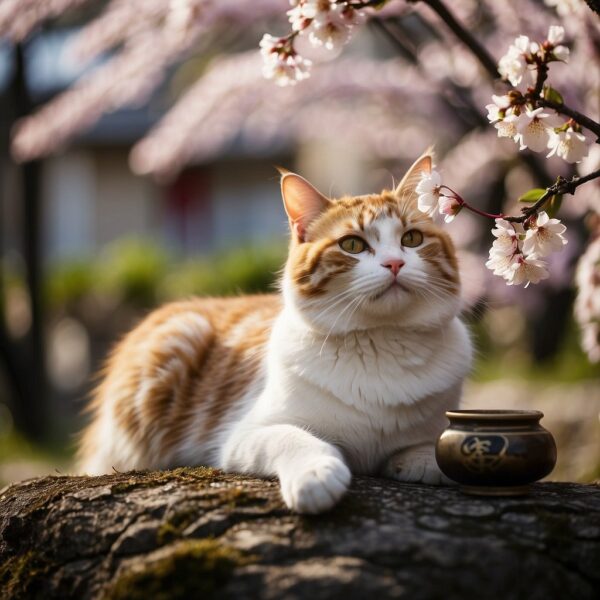
Names Inspired by Nature
When selecting a name that reflects the natural world, Japanese cat names often draw from elements that evoke the beauty and serenity of the outdoors. Names like Haru, meaning “spring,” represent the rebirth and fresh beginnings of nature, while Sora, translating to “sky,” captures the boundless and serene blue overhead.
Nature-inspired names can also derive from the various phenomena and elements surrounding the seasons. A popular choice is Yuki, which means “snow,” illustrating the quiet and pure essence of winter. It’s a fitting name for a cat with white fur or a peaceful demeanor.
Here is a selection of Japanese names that are associated with nature, particularly the entities mentioned:
| Element | Japanese Name | Meaning |
|---|---|---|
| Spring | Haru | Spring |
| Sky | Sora | Sky |
| Snow | Yuki | Snow |
| Red | Aka | Red |
| Blue | Ao | Blue |
| Black | Kuro | Black |
For those who are starstruck by the celestial, the name Hoshi meaning “star,” reflects a cat’s sparkling and vivacious personality. Embodied in the name is the brightness and the awe-inspiring nature of stars twinkling in the night sky.
Another evocative name is Hikari, which stands for “light.” This name is befitting for cats with a radiant personality or a shining coat, as it captures the essence of warmth and illumination that light provides to the world.
Owners can choose a name that mirrors their cat’s unique traits or even their hopes for the cat’s personality or the joy they find in nature’s beauty.
Names Reflecting Love and Affection
Japanese culture is rich in conveying emotions through names, and this is no different for their adored feline friends. Certain Japanese cat names resonate with love and affection, creating a special bond between the pet and parent. These names not only serve as identifiers but also embody the cherished traits and feelings that guardians hold for their pets.
Ai
The name Ai stands for love and is a direct expression of affection. It is a succinct yet powerful choice for a beloved cat.
Suki
Suki translates to ‘loved one’ and is ideal for a cat that holds a special place in its owner’s heart.
Mio
Mio can mean ‘beautiful cherry blossom’, often associated with love and the beauty of nature—making it a fitting name for a graceful and cherished cat.
Kimi
The term Kimi, signifying ‘noble’ or ‘she who is without equal’, is often used for a cat that is regarded with deep affection and esteem.
Ami
Ami means ‘friend’ or ‘beloved’, perfect for a companion that is both a friend and a loved family member.
Emi
Emi, meaning ‘beautiful smile’, would suit a jovial and loving feline companion whose presence brings joy.
| Name | Meaning | Connotation |
|---|---|---|
| Ai | Love | An expression of profound affection. |
| Suki | Loved One | For a cat that is dearly loved. |
| Mio | Beautiful Cherry Blossom | Symbolizes beauty and is associated with love. |
| Kimi | Noble/She Without Equal | Conveys deep respect and affection. |
| Ami | Friend/Beloved | Signifies a beloved companion. |
| Emi | Beautiful Smile | Represents joy and positivity. |
These names chosen for their meanings can reflect the guaridans’ emotions and aspirations for their cats, further strengthening the bond between them.
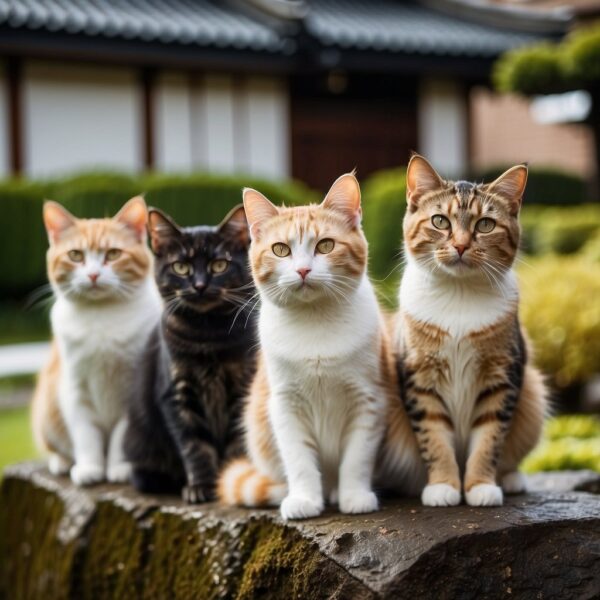
Spiritual and Symbolic Names
Japanese cat names often have deep spiritual and symbolic meanings that reflect cultural values and the natural world. They are selected with care, reflecting the characteristics and hoped-for destiny of the cat. Below is a list of names with their spiritual or symbolic connotations:
- Fuku: This name signifies luck or fortune. It carries connotations of happiness and a prosperous life.
- Hana: Meaning flower, Hana is a testament to the beauty and grace of nature. It symbolizes the ephemeral beauty of life.
- Sakura: Translating to cherry blossom, this name is emblematic of renewal and the fleeting nature of existence. The cherry blossom season is deeply spiritual and significant in Japan.
- Kai: Meaning ocean, it symbolizes vastness and mystery, often chosen for cats with a calm yet profound presence.
- Ren: This name means lotus, which is a symbol of purity and enlightenment, rising above the murky waters to bloom beautifully.
- Hikari: Translating to light, it represents radiance, hope, and positivity, often denoting a cat with a bright and uplifting persona.
- Mori: Meaning forest, this name conveys a sense of serenity and the complexity of life, suitable for a cat with a mysterious or tranquil demeanor.
- Kin: It means gold and is a symbol of wealth, refinement, and value.
Each of these names reflects a desire for the cat to embody the associated positive qualities. They incorporate a noble aspect that bestows a sense of dignity and respect on the feline bearer. Furthermore, names like these are not merely appellations but wishes for the cats to lead lives that are true to their meanings.
Names Derived from Food and Objects
When selecting a Japanese name for a cat, many parents look for inspiration in everyday items, such as food and objects that hold significance in Japanese culture. This can imbue the cat’s name with a certain charm and character.
Food-Based Names:
- Mochi: Called ‘rice cake’ in English, Mochi is a soft and chewy treat made from glutinous rice and often served on festive occasions. This name could suit a plump, sweet-natured cat.
- Sushi: A globally recognized Japanese dish consisting of vinegar-seasoned rice with a variety of toppings. A fitting name for a cat with a sophisticated demeanor or an adventurous palette.
- Katsu: Meaning ‘victory’, derived from the breaded and fried cutlet dish known as ‘tonkatsu’. It could reflect a triumphant spirit or the delight one finds in a hearty meal.
Object-Based Names:
- Cha: Translated as ‘tea’, this name could be ideal for a calm, soothing feline, reminiscent of the comfort one finds in a traditional tea ceremony.
- Emi: While not directly a food or object, the name Emi, meaning ‘beautiful smile’, can evoke the joy one finds in simple pleasures, similar to enjoying a favorite dish or cherished item.
Below is a concise representation of these names:
| Japanese Word | Item Type | Potential Cat Name | Meaning or Association |
|---|---|---|---|
| Mochi | Food | Mochi | Rice cake, sweetness |
| Sushi | Food | Sushi | Dish with rice, sophistication |
| Katsu | Food | Katsu | Breaded cutlet, victory |
| Cha | Object | Cha | Tea, tranquility |
| Emi | Non-food | Emi | Smile, beauty |
Each name tells a small story about the cat’s personality or the parent’s preferences, demonstrating an appreciation for Japanese culture that extends to their feline friend.
Names Based on Colors and Patterns
When choosing a name for a cat, many people draw inspiration from the animal’s color and pattern. In Japanese, particular terms convey these characteristics clearly and beautifully.
For white cats, the name Shiro means “white” in Japanese, resonating with their pristine, snow-like fur. Shiro may serve as a standalone name or be combined with other words to form a compound name descriptive of the cat’s characteristics.
Conversely, Kuro translates to “black,” making it a fitting choice for black cats. It reflects their sleek, shadowy coat and can likewise be part of a composite name to add uniqueness.
Blue or gray cats may suit the name Ao, which means “blue.” It’s an apt name for cats with a cool-toned fur color, reminiscent of the calm and serenity associated with the color.
Beyond solid colors, Japanese names also celebrate patterns. For instance, Mochi, while known as a type of sweet rice cake, can be a playful choice for cats with soft, round patterns or spots, echoing the shape and texture of mochi.
Lastly, for cats that bring good fortune or happiness, the name Yoshi, meaning “good” or “respectable,” can represent their positive influence. This name could be a match for cats with patterns or colors considered lucky or esteemed.
Japanese cat names derived from colors and patterns:
| Color/Pattern | Japanese Name | Meaning |
|---|---|---|
| White | Shiro | White |
| Black | Kuro | Black |
| Blue/Gray | Ao | Blue |
| Spotted | Mochi | Round like mochi (suggestive) |
| Lucky/Cherished | Yoshi | Good |
Choosing a name that mirrors a cat’s color or pattern not only celebrates their physical beauty but also imbues their name with cultural significance and character.
Names Exuding Strength and Character
Japanese culture is rich with names that carry deep meaning and convey qualities such as strength and noble character. Selecting a name with such attributes is not just a label for identity but can also reflect the personality and strong traits that owners might hope their feline companions will exhibit.
Tora stands for ‘tiger’, a name symbolizing strength and power in Japanese culture. A cat with this name is often seen as bold and spirited, much like the formidable animal it represents.
In the realm of determination and victory, Katsu directly translates to ‘victory’. It is a name given to cats that display a winning spirit and a charismatic presence.
Ryo —meaning ‘excellent’ or ‘cool’—embodies a subtle blend of excellence and a composed demeanor, hinting at a cat’s noble lineage or high-quality character.
Next, Jun conveys purity and nobility, suitable for a cat with a dignified and refined nature. This name resonates with the idea of a cat whose regal bearing is undeniable.
Emphasizing wisdom and respect is Kei, a name which suggests ‘blessing’ or ‘respect’. Cats that boast a wise and thoughtful temperament are often befitting of this title.
Masa, a root often found in names, signifies ‘righteousness’ or ‘just’. A cat with a strong moral compass or one that has a commanding presence might be aptly named Masa.
Lastly, Rei means ‘gratitude’ or ‘courtesy’, epitomizing the graceful and thankful nature that a well-mannered cat can express.
When choosing a name for a cat, the inherent meaning can be a powerful reflection of the feline’s individuality. Each of these names is not just intended to be a moniker, but a representation of the cats’ profound inner strength and commendable character.
Choosing a Unique Name
When selecting a unique Japanese name for one’s feline friend, the process reflects a celebration of Japanese culture and the individual characteristics of the cat. A unique name can be a conversation starter and a story in itself, representing traits or physical attributes one wants to highlight.
Considerations for a Unique Name:
- Meaning: Choose a name that carries a significant or appealing meaning.
- ‘Hikari’ means light, symbolizing brightness and positivity.
- ‘Hoshi’ translates to star, ideal for a cat with a sparkling personality.
- Size: If the cat is particularly small, ‘Chibi’ , which means small or miniature, would be a fitting and affectionate choice.
- Sociability: For a generous-hearted cat, ‘Yutaka’ stands for generous. This can reflect a cat’s nurturing disposition.
Popular Names with Meanings:
- ‘Kira’ : Resonates with the shine and glitter of a star, perfect for a cat with a striking presence.
- ‘Neko’: Simply translates to cat in Japanese, embodying the essence of the feline spirit. It’s a straightforward yet classic name.
- ‘Yoko’ : Meaning sunshine, this name might suit a cat that brings light and joy to one’s life.
In summary, a unique Japanese cat name is not just a label, but a reflection of the cat’s identity and the parent’s appreciation for Japanese language and culture. The chosen name should resonate with the special bond between them, and celebrate the cat’s unique qualities.
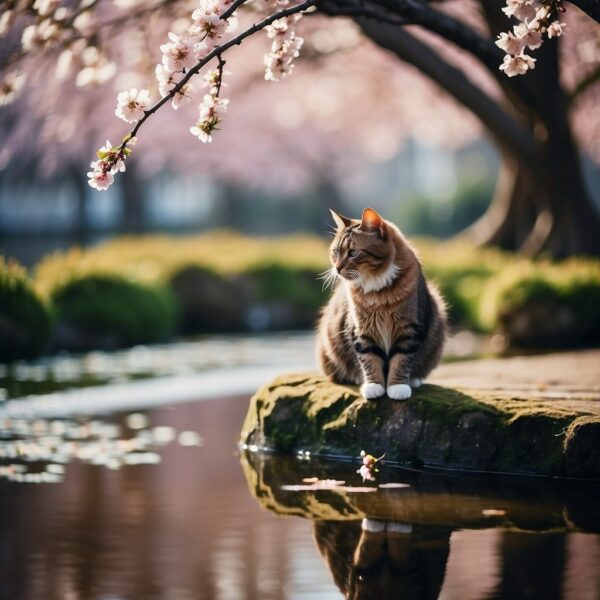
Frequently Asked Questions
In this section, you’ll find answers to the most common inquiries about Japanese names for cats, including their meanings and cultural significance, catering to a variety of feline personalities.
What are popular male Japanese names for cats?
Popular male Japanese cat names often reflect positive attributes or natural elements. “Hiroshi” means generous, “Takashi” stands for nobility, and “Kaito” signifies soaring.
Which Japanese names are considered cute for cats?
Names like “Mochi,” derived from a soft and sweet rice cake, and “Yuki,” meaning snow, are considered cute for their delightful associations and pleasant sounds.
Could you suggest some unique Japanese cat names with their meanings?
For unique options, “Tsukiko” means child of the moon, “Raiden” is the god of thunder and lightning, and “Kenji” means strong and vigorous, each offering a distinctive flair.
What are some common female Japanese cat names?
Common female names for cats often embrace elegance and beauty, such as “Sakura” for cherry blossoms, “Hana” meaning flower, and “Aiko” signifying beloved child.
What are some badass Japanese names suited for a cat?
Names with a strong presence, like “Ry” (dragon), “Kane” (warrior), and “Sora” (sky), are often chosen for cats to embody strength and a commanding nature.
Can you list some Japanese anime-inspired names for cats?
Anime fans may appreciate names like “Totoro,” from the beloved Studio Ghibli film, “Naruto,” after the energetic ninja protagonist, or “Sailor,” inspired by Sailor Moon.